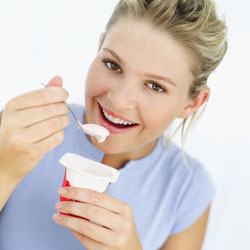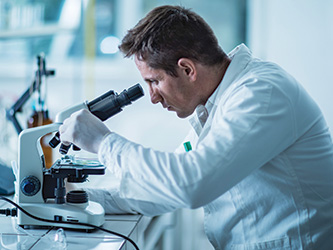Generally, things of higher value, or those things perceived as being of higher value, simply cost you more.
And that pretty much applies across the board from the place you call home, to the cars you drive, and to many of the consumables you buy as well.
But every once in a while, something comes along that becomes an exception to all this. Sometimes the exception is strictly a marketing ploy of some sort... to con you into believing you're getting more value for your hard-earned money than you really are.
For example, many automobile manufacturers compare their products to higher end vehicles.... These manufacturers might try to convince you their vehicle has all the bells and whistles comparable to the higher-end vehicle... but at half the price.
At first blush, you might start believing what they say is true.
But when you dig deeper, you may find their vehicle may have most of the tangible features of the luxury cars, but the quality doesn't come close. Or, when you test drive their vehicle, the road-feel is not anywhere near that of the more expensive vehicle.
This is by no means an endorsement for any auto brand, but simply an example of how value exceptions can sometimes end up being misleading... and how they really require you to be on your toes to watch out for them... to do your homework.
And in the complex world of nutritional supplements, it's important for you to know...
How Perceived vs. Actual Health Value Can Be Very Dicey

Don't be fooled by very low-priced
supplements. Many are made from
cheap, unhealthy synthetic ingredients.
Many supplements claim to provide great benefits at very low prices. But when you dig deeper you often find out that cheap, synthetic ingredients were used.
Or, at the other end of the spectrum, the producers of more expensive supplements try to convince you a special process or hard-to-find ingredient is needed to justify the higher cost... in my opinion, often times this is simply a marketing ploy.
For every one that makes it through my rigorous acceptance gauntlet, dozens upon dozens more get rejected.
I truly believe that with what I'm about to show you, you'll see why I consider this to be one of the best health values for your money*... a true value exception with facts to back it up... a situation where I believe you simply will get more value for the same amount of money.
To get started, let's take a brief trip back in time...
The History Behind Fermented Foods and Their Health Benefits
History provides us a few clues on how different cultures promoted their intestinal health before modern times. Years ago, people used fermented foods like yogurt and sauerkraut - as food preservatives and as support for intestinal and overall health.

Ancient Indian culture (as well as today),
promoted intestinal health with a raw yogurt
drink called lassi - full of probiotics
Here are a few examples...
- During Roman times,people ate sauerkraut because of its taste and benefits to their overall health.
- In ancient Indian society,it became commonplace (and still is) to enjoy a before-dinner yogurt drink called a lassi. These Indian traditions were based on the principle of using sour milk as a probiotic delivery system to the body.
- Bulgariansare known both for their health and their high consumption of fermented milk and kefir.
- In Asian cultures,pickled fermentations of cabbage, turnips, eggplant, cucumbers, onions, squash and carrots still exist today.
- People of the Ukraine consume probiotics from foods like sauerkraut, raw yogurt, and buttermilk.
The interesting thing was most of these dietary habits were born from tradition... at the time, no one really knew or understood why they were so healthy to your digestive system.*
How Probiotics Got Their Start - An Uphill Battle
Against Big Pharma
Well, things changed in the early 1900s, when Russian scientist Elie Metchnikoff (Nobel Prize 1908) proposed that the Balkan population enjoyed excellent health due to consumption of large quantities of fermented milks containing beneficial bacteria.*
These 'good' bacteria were later defined as probiotics, which comes from Greek terminology meaning 'for life.'
In the 1950s, the USDA licensed a probiotic formula for use in the digestive tract of pigs. Later on in the 1970s, the effectiveness of the probiotics in that role in pigs was discovered. Probiotics were later pioneered for human use.
So, what took so long to bring probiotics to the forefront in human health enhancements?*
I believe that the mere fact that large pharmaceutical companies were able to leverage millions of dollars to market their products pushed probiotics out of the way... relegated them to the back-burner.
But today, the health trend has clearly begun to shift toward natural nutrition. And that has allowed probiotics to resurface and gain the attention they deserve.
And that's why I spend so much of my time researching factual data on how to provide you with the best probiotic formula available.
All this is well and good, but...
Why Are Probiotics So Vital to Your Health?*

Why do many caesarean-section infants have
less-than-optimal health after birth?
From the very first breath you take, you're exposed to probiotics.
How so?
On the way through the birth canal during a normal delivery, a newborn gets dosed with bacteria from their mother. This event starts colonization in the infant's gastrointestinal (GI) tract of 'good' bacteria. Compelling new research now shows many caesarean-section infants have less-than-optimal health after birth. This is most likely because they are not exposed to the mother's healthy bacteria in the birth canal which would then serve to populate its own GI tract.
As you mature, you're faced with many threats to the beneficial bacteria in your gut... from chlorinated drinking water... to overly-processed foods.
The 'good' bacteria in your gastrointestinal system can only provide you with optimum health if the proper balance of different types of bacteria is maintained in your gut.*
This is where probiotics can have a profound effect... not just on your GI health, but on your overall health as well.* Keep in mind, 80% of your immune system actually lives in your gut.
Probiotic formulas are available with many different types of bacterial strains... with the most common being Lactobacillus acidophilus. But as you'll find out shortly, not all probiotics are created equal... and not all probiotic formulas are properly produced to provide optimal benefits.*
In general, if formulated properly, the major benefits of a high-quality probiotic are to...
- Aid you in digesting food, particularly hard-to-digest foods and foods to which some individuals are more sensitive.*
- Enhance the synthesis of B vitamins and improve calcium absorption*
- Help you keep a healthy balance of intestinal microflora*
- (In women) Promote vaginal health*
- Support your overall immune function*
And more...
I strongly believe the key to an optimal probiotic formula is through science-backed research by a qualified non-biased laboratory... and through a manufacturer with rigorous high-quality process standards in place.
You'll see more evidence of this unwavering belief I have coming up...
When's the Best Time to Take a Probiotic Supplement?
One of the confusing issues with probiotic supplements hinges around timing... when is the best time to take them?

When's the best time to take a probiotic?
See my recommendations here
Recommendations are pretty much all over the place on the best time to take them around meal times.
I can tell you when it comes to this, my team and I have carefully researched this issue and even consulted with the one of the foremost authorities and pioneers on probiotics...
The bottom line... my recommended approach and timing for taking a probiotic supplement are...
- Take it priorto eating breakfast with a glass of pure water
- Wait 10-15 minutesafter taking it before you eat because stomach acid from your meal could impact some of the 'good' bacteria (you could lose 5-10%)
- Avoid taking it within 3 hours of taking any antibiotic
And talking about meals and probiotics, something I hear quite often is...
"If I Eat Yogurt, Should I Still Take Probiotics?"
You are probably wondering why using nearly any commercial yogurt might not be as beneficial as a probiotic supplement. After all, traditional cultures have been consuming cultured, fermented foods like yogurt for years for digestive health promotion.

Most commercial yogurts are not a good source
of probiotics. Heat pasteurization significantly
reduces most of the 'good' bacteria benefits
The problem arises because...
- Traditional yogurts were phenomenal sources of beneficial bacteria due to their raw and unpasteurized state.
- Most of today's yogurts are pasteurized, unless specially purchased raw and unpasteurized from a local farmer. Sadly, pasteurization radically reduces most of the benefits.
- Even most of the yogurts certified organic by the USDA are pasteurized in some fashion.
So what, in my opinion, is wrong with pasteurization?
Well, it basically kills or sterilizes most of the beneficial and other bacteria during the heat processing. And some yogurts (particularly the frozen ones), don't contain any live bacteria at all.
So, as great-tasting as many of them are, don't be fooled by yogurt products advertising live cultures beneficial to your digestive system... many have likely had the beneficial bacteria already reduced or wiped out by heat-intensive pasteurization processes.
To me, this is one of those cases where it appears that in our collective zeal to rid ourselves of every trace of infectious agents in our food supply and homes, we may have outdone ourselves.
As a whole, we're less exposed to bacteria now than in the past, including beneficial bacteria. Antibacterial products, hand sanitizers, and the like have made for a world that's a whole lot cleaner, but is it really that much healthier?
Due to strict food safety regulations, less bacteria (including the 'good' ones) survive the manufacturing process. Many overly-processed products, just like yogurt, undergo pasteurization or sterilization, which may destroy beneficial bacteria.
While this may be helpful in some ill-health prevention, it also means we are exposed to less health-enhancing bacteria.*
And with helpful bacteria less available in our food, I'm even more convinced how crucial it is to consider supplementation with high-quality probiotics.
But, I first must raise the caution flag and give you fair...
Warning: Make Sure You Get the High-Quality Solution
So, how do you go about finding a high-quality probiotic supplement?
First of all, before we're through, I'll help dispel some of your guess-work with my findings on some of the latest probiotic discoveries... and provide my recommendations as well.
But before I do that, there are some key factors I feel differentiate the good probiotic formulas from those that are questionable... and may even be a waste of your money.
Basically, without the following key factors, any probiotic formula can be suspect at best, unless it...
- Contains effectivebacterial strains - it must be strain specific*
- Is viableand dose specific
- Remains stableand viable for long period of time
- Has the ability tosurvive the stomach and into the intestine
- Produces beneficial effects and thrives in the intestine*
This complicates the world of probiotics a bit because there are so many manufacturers out there making claims on digestive health promotion.
But you don't need to fall for any of the misconceptions... I'll help you dig through the maze and minutia as we go.
If Your Probiotic Formula Does Not Contain THIS, In My Opinion, You Shouldn't Waste Your Time

If your probiotic does not contain this specific
lactobacillus acidophilusbeneficial strain (DDS-1), you could
be wasting your time
One of the key formulation factors in a probiotic supplement that I already mentioned, is it must contain effective bacterial strains.* Now, as you can imagine, this is a rather complex issue.
But of all the strains produced over the years, there is one I believe exceeds all others... and to me, if the probiotic formula does not contain this strain, well quite frankly, you're not getting your best health-bang for the buck.*
I no longer consider taking a probiotic as part of my daily regimen without this strain!
This strain has the distinction of being one of the few bacterial species for which probiotic attributes have been shown to be effective.*
So what is this strain?
Lactobacillus acidophilus DDS-1 is the name of this highly effective strain of beneficial bacteria*... and the 'DDS-1' is really important. There are other strains of Lactobacillus acidophilus out there, but without the DDS-1 specificity, your potential health benefits could come up short.*
It has been found that this specific probiotic strain possesses vital properties important to human health.* Research at a major Midwestern university showed how DDS-1 enhanced human health because it colonized well in the human gut.*
Research and studies suggest DDS-1 can be effective toward enhancing human health because it...
- Adapts well to the human body because of its human origin
- Is acid and bile resistant for intestinal survival
- Helps promote your digestive health*
- Aids in supporting your immune system*
- Contributes to the good balance of your intestinal flora*
- Produces significant quantities of lactase to potentially aid in lactose intolerance challenges*
I'm convinced Lactobacillus acidophilus DDS-1 is one of the important and necessary strains in an effective probiotic supplement.* Without it, I believe you're not maximizing the potential of using this type of supplement.
But it's one thing to just explain how DDS-1 potentially enhances your health*... it's another to provide examples of clinical trials and research that provide compelling evidence...
Probiotic Superstrain - A Study in Health-Boosting Benefits*
Over the years, several studies have demonstrated the diverse effectiveness of DDS-1 and help validate its potential use as a probiotic.* Here are a few examples...
- From major Midwestern University and prestigious health center (2010) - Conducted a review of case studies to determine whether using a multispecies probiotic with DDS-1 could enhance bowel health.
Results:After 60 days of treatment, most showed significant improvement in abdominal health, bloating and occasional elimination irregularities.* This study suggests that DDS-1 may help create a healthy balance of microflora in the gastrointestinal tract.* - From Gut (2003) - DDS-1 helped to support the health of human epithelial cell lines when evaluated as part of a probiotic blend. *
- (1997) - In animal research, isolated evaluation of DDS-1 supported the normal production of immune components.* DDS-1 performed this better than three other strains of Lactobacillus acidophilus or Bfidobacterium bifidum.*
These are but a few examples why I believe DDS-1 plays a key role in optimal health when you use a probiotic supplement.*
Don't Spend Potentially More on a High-Quality Probiotic
If You Don't Have to...
One controversial area of discussion involving probiotic supplements involves survivability.
By survivability, I mean the ability of the 'good' bacteria released by the supplement to survive and reproduce in your intestinal tract.
Why is this so important?
Well, if the beneficial bacteria are destroyed by your stomach acid and intestinal bile, your GI tract won't be able to take advantage of the potential health benefits.*
Many theories abound on how to solve this... many I believe are not necessary and just waste your money. This gets back to the value perception issue once again.
Many probiotic manufacturers want you to believe that a special type of coating, called enteric coating, is necessary for the beneficial bacteria to survive. Basically, enteric coating is a type of layer put on the capsule itself to supposedly ensure survival of the beneficial bacteria in your GI tract.
I have several issues with enteric coating that can be summed up as follows...
- It's an expensive process - The cost you pay for a high-quality enteric coated probiotic supplement with significant numbers of CFUs often becomes highly inflated due to the expensive enteric coating process.
- In my opinion these enteric coatings are unnecessary for GI survival- According to probiotic experts, selecting specific acid and bile resistant strains coupled with high-quality manufacturing processes, negate the need for enteric coating. In fact, the process of enteric coating could potentially reduce the viability of live beneficial bacteria altogether.
- Many enteric coatings use synthetic ingredients - There are few uses of natural enteric coating because this adds even more cost. Most enteric coated probiotics are treated with a polymer of acrylic acid... a synthetic chemical often sprayed onto the capsule.
And what about raw, unpasteurized yogurt, sauerkraut, fermented milk and kefir consumed as traditional foods for generations to boost digestive health? The beneficial probiotic bacteria within these foods have not had difficulties surviving stomach acid and intestinal bile.
So, why would a high-quality probiotic supplement require some sort of coating to enhance the survivability of the contents?
Well, in my opinion, it doesn't. And I believe the added cost is not only an unnecessary expense to you, but may be an added health detriment as well... if the coating is synthetic.
Many probiotic manufacturers have created a perception of greater value to justify the higher cost of their enteric coated probiotics. Guess what? In my opinion, the value is not there so you can simply just avoid them.
I'll show you what I consider to be a much more robust and less costly solution coming up...
Little-Known Complement Adds 'Spice' to Probiotic Formula
With much of the attention focused on probiotics, there is a little known complement to probiotics called prebiotics that play an important role in your digestion.*

Pure raw honey is an excellent source of prebiotics
So, what are prebiotics?
Prebiotics help keep beneficial bacteria healthy.* They basically are non-digestible foods that end up in your digestive system to help beneficial bacteria (probiotics) grow and flourish.*
The prebiotics that feed the 'good' bacteria in your GI tract primarily come from carbohydrate fibers called oligosaccharides that you don't digest.* They remain in your digestive system to help boost the growth of beneficial bacteria.*
Natural sources of prebiotics include …
- Fruits...
- Raw Honey...
- Legumes...
More coming up on how my probiotic solution provider has found a solution for this. But first...
If You're Currently Taking Or Are Considering Taking Probiotics, I Recommend That You Make Sure It Has These...
Here's my list of 'must-haves' in a probiotic formula. And if you're familiar with my current probiotic formula on my site, you'll recognize some identical requirements and some new ones as well.
See, as time goes on, research and technology are creating moving targets of improvement in probiotics... and I want to make sure you have every opportunity to take advantage of newly uncovered health-promoting properties.*
Now, to the demanding list... my 'must-haves' in a probiotic formula...
|
Now, you can use these rigorous criteria to find a probiotic formula that matches up... but you'll probably have a difficult time.